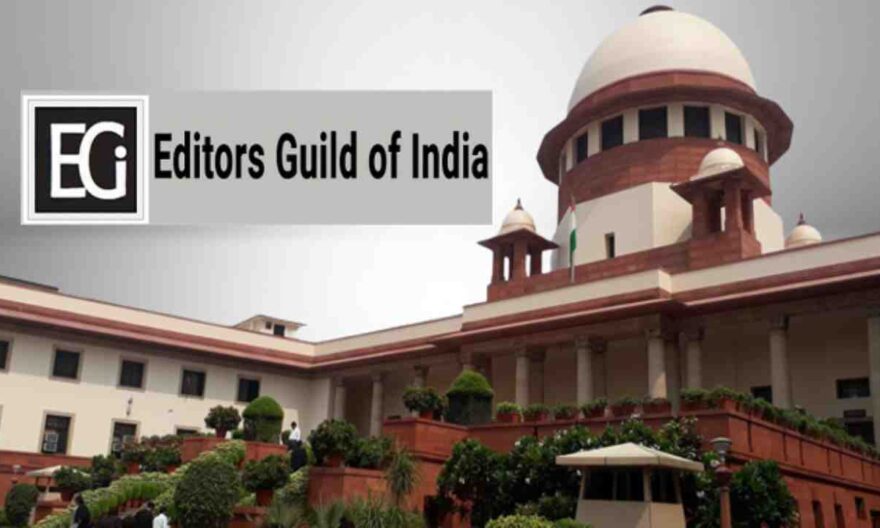
The Supreme Court on Friday extended the protection from coercive action granted to four members of the Editors Guild of India (EGI) by an additional two weeks in connection with two FIRs filed against them in Manipur. These FIRs alleged that the EGI members promoted enmity between different groups.
A bench comprising Chief Justice D Y Chandrachud and Justices J B Pardiwala and Manoj Misra also sought a response from the complainant who filed the FIRs against the EGI President and its three members.
The court sought an explanation regarding how the offense of promoting enmity between different ethnic groups was established against them.
The Manipur government, represented by Solicitor General Tushar Mehta, suggested that the Supreme Court could continue to protect the EGI and its members for an extended period, or if the bench preferred, the matter could be transferred to the Delhi High Court for adjudication.
Previously, on September 11, the Supreme Court had extended the protection from coercive action for the EGI and its members until Friday. It also sought the response of the Manipur government on whether their plea for quashing the FIRs and seeking relief should be transferred to the Delhi High Court for consideration.
On September 4, Manipur Chief Minister N Biren Singh had stated that a police case had been registered based on a complaint against the president and three members of the Editors Guild of India. They were accused of attempting to “provoke clashes” in the state. A second FIR against these individuals included an additional charge of defamation.
The initial complaint against EGI president Seema Mustafa and three other members was filed by Ngangom Sarat Singh, a retired engineer who had previously worked for the state government. The second FIR was lodged by Sorokhaibam Thoudam Sangita of Khurai in Imphal East district.
In addition to EGI president Seema Mustafa, those named in the FIRs are senior journalists Seema Guha, Bharat Bhushan, and Sanjay Kapoor. They had visited the state between August 7 and 10 to analyze media reporting on ethnic violence.
The EGI report which published on September 2, criticized the internet ban in Manipur for hindering media reporting, accused some media outlets of one-sided reporting, and claimed that there were indications of the state leadership displaying partisan behavior during the conflict.




